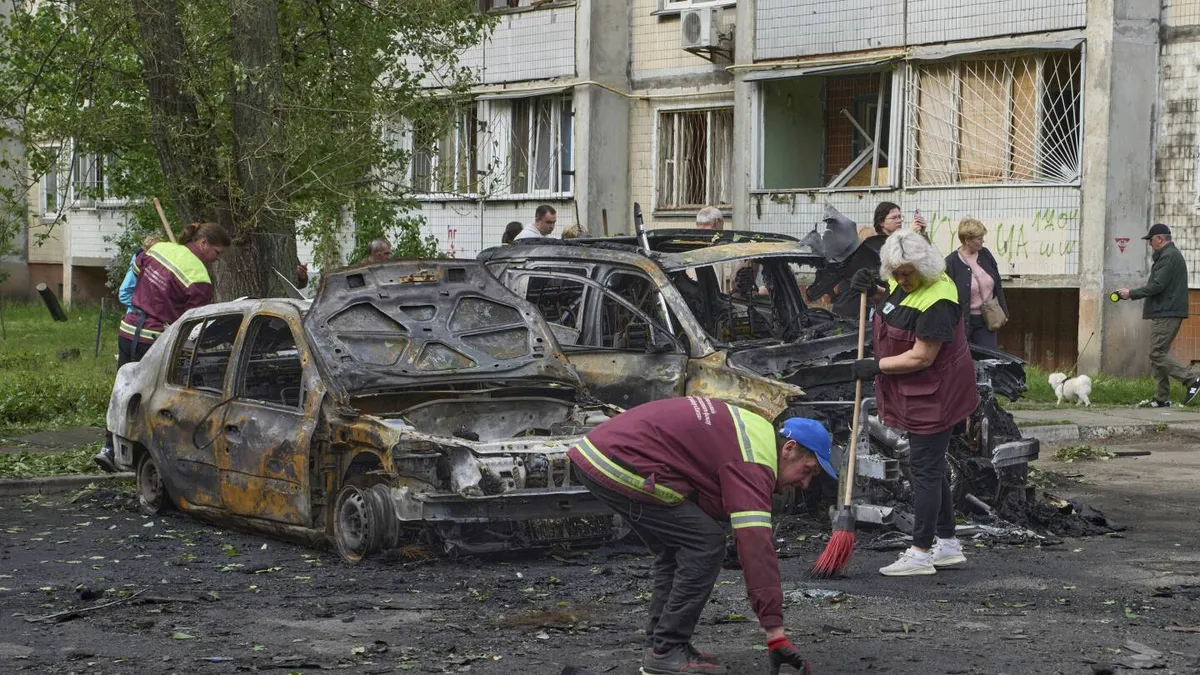
In a recent broadcast on Sunday, Russian President Vladimir Putin commented on the ongoing conflict in Ukraine, stating that the need to utilize nuclear weapons has not yet arisen, and he hopes it remains that way. This statement was part of a preview for an upcoming interview with Russian state television, shared via Telegram. During the interview, Putin emphasized that Russia possesses the strength and resources necessary to bring the conflict in Ukraine to a "logical conclusion."
Responding to a question regarding Ukrainian strikes on Russian territory, Putin remarked, "There has been no need to use those (nuclear) weapons... and I hope they will not be required." He further asserted, "We have enough strength and means to bring what was started in 2022 to a logical conclusion with the outcome Russia requires." This declaration comes on the heels of Putin signing a revised version of Russia's nuclear doctrine in November 2024, which outlines the conditions under which he could deploy Moscow's vast atomic arsenal. Notably, this updated doctrine lowers the threshold for nuclear engagement, allowing for a response to even conventional attacks supported by nuclear powers.
The situation remains tense as Russia and Ukraine continue to clash over competing ceasefire proposals. Ukrainian President Volodymyr Zelenskyy recently expressed skepticism regarding Moscow's announcement of a 72-hour ceasefire next week, coinciding with the Victory Day celebrations marking the end of World War II. Zelenskyy characterized the ceasefire as an attempt to create a "soft atmosphere" for Russia's annual observances, while advocating for a more substantial 30-day pause in hostilities, as initially proposed by the United States.
In a unilateral move, Putin declared a 72-hour ceasefire in Ukraine, effective from May 8 through May 10, to commemorate the Soviet Union's victory over Nazi Germany in 1945—Russia's most significant secular holiday. The Kremlin has framed this truce as being ordered on "humanitarian grounds," amidst growing international pressure from the U.S. for a resolution to the ongoing conflict, which has persisted for three years.
As diplomatic efforts continue to falter, the civilian toll remains high. Reports indicate that 11 individuals were injured in a recent Russian drone attack on the Ukrainian capital, Kyiv. Among the wounded were two children, highlighting the indiscriminate nature of the conflict. Valentyna Fesiuk, an 83-year-old resident of Kyiv’s Obolon district, recounted her experience during the attack: “I was just sleeping when the house shook. It was at 12:30. An apartment on the 12th floor caught fire.”
Another resident, Viacheslav Khotab, expressed his frustration over stalled peace negotiations: “I saw my car burning. I was covered with broken glass... They can’t agree on anything, and we are the ones who suffer the consequences.”
18-year-old student Daryna Kravchuk shared her harrowing account of the attack, noting, “Five to six minutes after the air raid was activated, we heard a strong impact, everything started shaking... There were three strikes almost in a row after the air raid was activated.” She emphasized the ongoing suffering of the Ukrainian people, stating, “It’s very scary to witness, we have been suffering from this for so long. People are just suffering all the time. It’s still very hard to see our country constantly being destroyed.”
According to Ukraine's air force, Russia launched a total of 165 exploding drones and decoys overnight, of which 69 were intercepted, while an additional 80 were likely lost due to electronic jamming. Additionally, Russia fired two ballistic missiles during this attack. In response, Russia's Defense Ministry claimed its air defenses successfully shot down 13 Ukrainian drones overnight, illustrating the ongoing intensity of military engagements in the region.